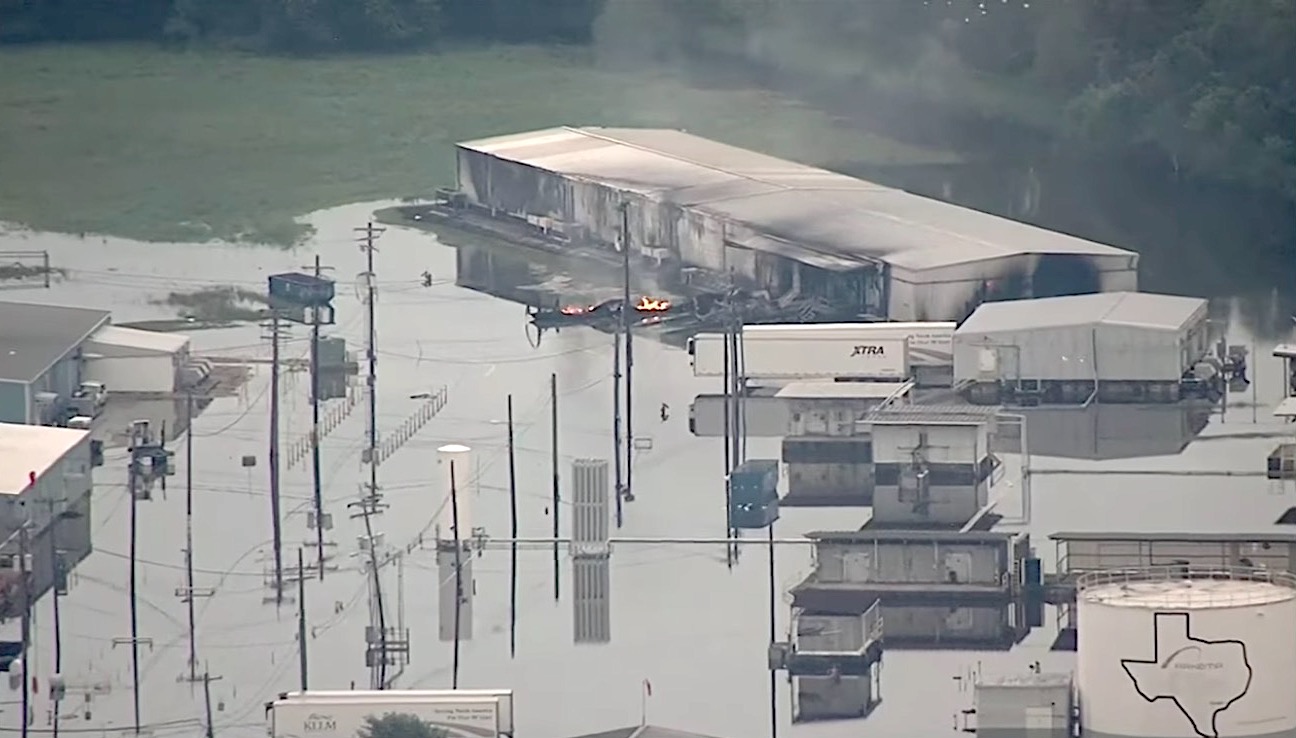Houston's damaged Arkema chemical plant recently lobbied against stronger chemical plant safety rules


A free daily email with the biggest news stories of the day – and the best features from TheWeek.com
You are now subscribed
Your newsletter sign-up was successful
Black smoke from ignited refrigerated-truck containers of volatile organic peroxides at Arkema's chemical plant in Crosby, Texas, early Thursday morning sent 16 Harris County sheriff's deputies to the hospital with respiratory issues, but none of the deputies are expected to have permanent damage and Arkema and the county fire marshal said they believe the smoke isn't toxic with limited exposure. Arkema also said the remaining eight tractors full of organic peroxides will probably combust, and the sheriff's office is enforcing the 1.5 mile-radius evacuation zone in the town, 25 miles northeast of Houston.
The Arkema chemical fires are only part of the hazardous combination of floodwater and 230 chemical plants, 33 oil refineries, and hundreds of miles of pipelines carrying dangerous materials in and around Houston, The Associated Press reports, citing the Texas Commission on Environmental Quality and the Sierra Club. Many of those facilities continue to report spills and leaks from Tropical Storm Harvey. The Houston area is no stranger to chemical plant explosions, and some residents in Crosby talk about environmental disasters "as Californians might discuss the inevitability of the next earthquake," The Washington Post reports. Others argue that unlike the hurricane, plant disasters are avoidable, as in this Thursday night report from CBS 11 News Dallas-Fort Worth:
Those latter residents may be right. Federal regulations governing chemical plant safety haven't been updated since 1992, and experts say that the decision to upgrade plants to the latest safety technology are mostly voluntary. After a deadly fertilizer-plant explosion in West, Texas, in 2013, the Obama administration came up with new rules to strengthen regulations and, as the EPA explained, "seek to improve chemical process safety, assist local emergency authorities in planning for and responding to accidents, and improve public awareness of chemical hazards at regulated source."
The Week
Escape your echo chamber. Get the facts behind the news, plus analysis from multiple perspectives.

Sign up for The Week's Free Newsletters
From our morning news briefing to a weekly Good News Newsletter, get the best of The Week delivered directly to your inbox.
From our morning news briefing to a weekly Good News Newsletter, get the best of The Week delivered directly to your inbox.
The rules were set to take effect March 14. President Trump's EPA administrator, Scott Pruitt, put them on hold for two years. Arkema, a unit of French oil giant Total, specifically lobbied Pruitt and the EPA to block the rules, the International Business Times reports, arguing they would be too onerous and expensive.
A free daily email with the biggest news stories of the day – and the best features from TheWeek.com
Peter has worked as a news and culture writer and editor at The Week since the site's launch in 2008. He covers politics, world affairs, religion and cultural currents. His journalism career began as a copy editor at a financial newswire and has included editorial positions at The New York Times Magazine, Facts on File, and Oregon State University.
